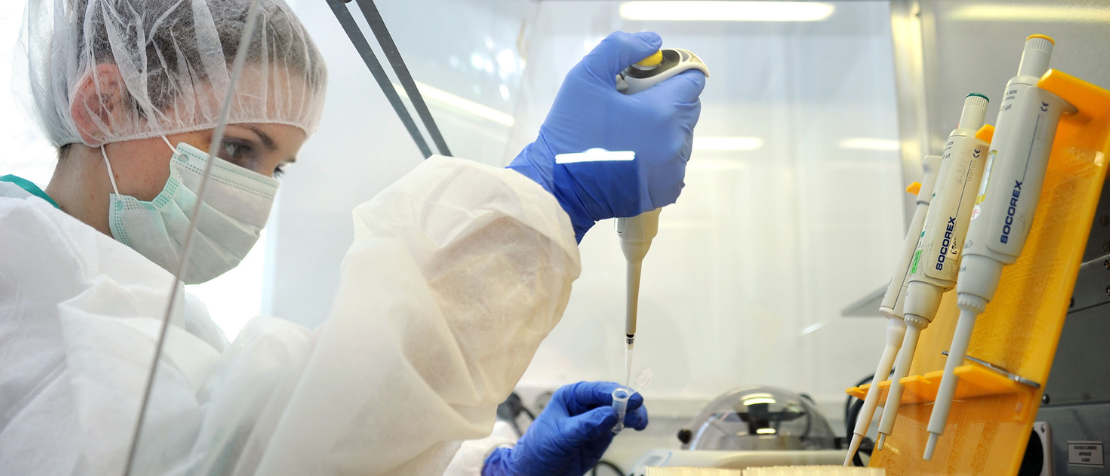FAO and five countries combat antimicrobial resistance in the agrifood systems of Europe and Central Asia
The World AMR Week (18 to 24 November) calls for more education, advocacy, and acts to address this global threat

©Sergei Gapon
Five countries in Europe and Central Asia became better prepared to combat antimicrobial resistance (AMR) in their agrifood systems through support of a project implemented by the Food and Agriculture Organization of the United Nations (FAO) and funded by the Russian Federation. Armenia, Belarus, Kazakhstan, Kyrgyzstan, and Tajikistan took initial actions on AMR in the agrifood sectors, with special emphasis on the livestock sector, and implemented measures to reduce the development and spread of AMR.
“Antimicrobial resistance is driven by the misuse and overuse of antibiotics and other antimicrobial substances in humans, animals, and plants. It is an emerging global threat claiming lives of more than one million people worldwide every year,” stated Eran Raizman, Senior Animal Production Health Officer at FAO. Every year, the World AMR Awareness Week (WAAW) (18–24 November) provides a critical call attention for the prudent use of antimicrobials. This year’s theme is “Educate. Advocate. Act now.”
The FAO project is aligned with the WAAW 2024 theme as it was designed to minimize the adverse effects of AMR on the food and agriculture sector by strengthening awareness and technical knowledge at all levels and creating an enabling environment in the countries for actions against AMR. For most target countries, this project constitutes their first step in their fight against antimicrobial resistance.
Specifically, in the course of the project activities over the last seven years, the countries improved their legal frameworks and policies regarding antimicrobial use (AMU), strengthened knowledge in national laboratories personnel, farmers, and veterinarians, built surveillance capabilities, and appropriate infrastructures, as well as facilitated multi-sectoral collaboration and strategic advocacy on the risks related to AMR for humans, animals, plants and the environment.
Educate
“What is important is that the five countries have now a better understanding of their policies, laboratory capacity, antimicrobial use practices, and AMR situation. This was a crucial step in building targeted actions and intervening where it is most impactful,” explained Daniel Beltran-Alcrudo, FAO technical advisor on animal health.
By assessing the current situation and providing recommendations, the assessments help countries to improve their regulatory framework related to antimicrobial resistance and use, strengthen national AMR laboratory and surveillance systems, and improve the AMR curricula in veterinary schools.
Additionally, awareness on antimicrobial resistance and prudent use of antibiotics was raised through newly developed and targeted information materials, a wide range of awareness raising activities in all five beneficiary countries, as well as at international scientific conferences.
Advocate
Knowledge-attitude-practices (KAP) surveys were conducted collecting qualitative data to better understand antimicrobial use practices and awareness of AMR among farmers, veterinarians, veterinary pharmacies and feed mills, and recommendations were provided to address the main gaps identified.
Going beyond the analytical work, field trainings were conducted for dairy and poultry farmers and veterinarians in all five countries to improve animal health and husbandry practices to reduce the need for antimicrobials and to increase productivity on livestock farms.
Act now
Laboratories are key to detecting AMR and generate much needed data to inform policies. Therefore, FAO experts provided training to laboratory staff on detecting AMR and supported AMR surveillance pilot studies in food and agriculture, while labs also received reagents and equipment for AMR testing. The project also supported the creation of the Regional Laboratory Network on Antimicrobial Resistance in food and agriculture in Eastern Europe, Transcaucasia and Central Asia countries, and the establishment of an FAO Reference Centre for AMR in the Russian Federation to support countries in the region.
“The project provided an opportunity for the beneficiary countries to work on addressing AMR in food and agriculture. Together we have laid the foundations for long-term actions on handling AMR, and created the framework within which enhanced country capacities’ can be utilized beyond the duration of the project,” Dora Kovács, antimicrobial resistance specialist, added.
FAO AMR website
Russia backs FAO work to tackle antimicrobial resistance with $3.3 million
Moscow conference aims to unite countries in fight against antimicrobial resistance
Conference sets to improve food safety and reduce threat of antimicrobial resistance
A regional network of laboratories will help fight antimicrobial resistance
FAO Reference Centre within Rospotrebnadzor to combat “superbugs”
FAO is ready to continue the project on reducing AMR spread
